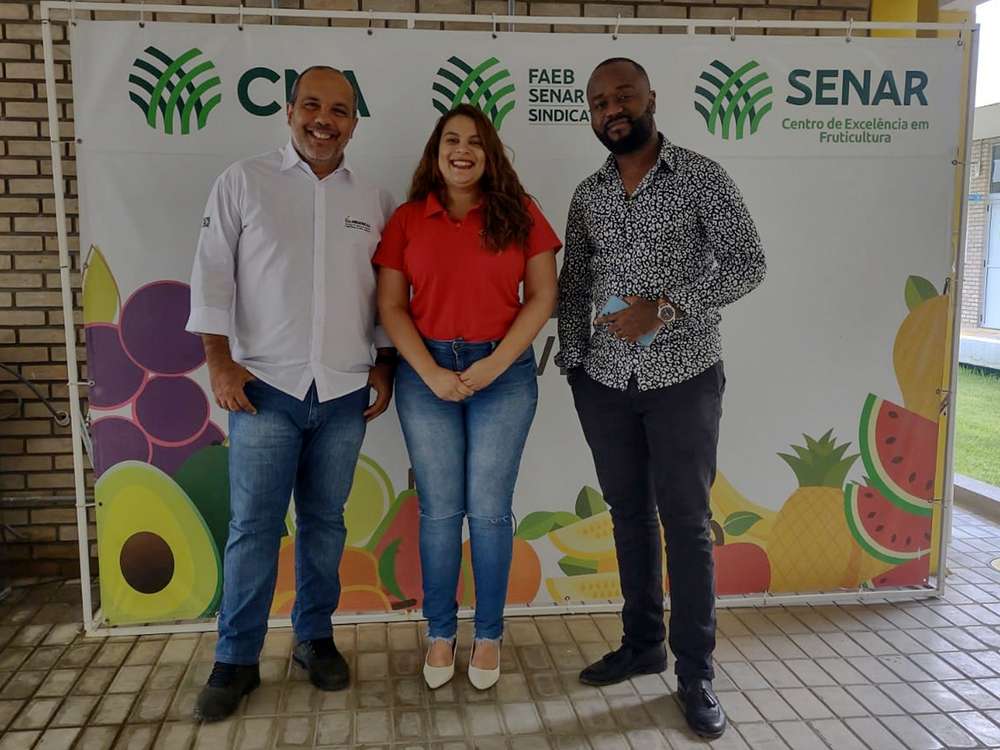News Article
QIMA & ABRAFRUTAS
Association with Abrafrutas marks another step in the expansion of QIMA Group's services
The international certification company is now part of the associates of Abrafrutas, an association aiming to solve issues faced by the fruit production chain.
The second half of 2022 marks an important step for QIMA Group in expanding its solutions for the fruit sector: the certifier is now part of the associates of Abrafrutas, the Brazilian Association of Fruit Producers and Exporters.
This membership is part of the company's proposal to expand its services and solutions for the fruit sector. Ana Maria Ishida, Global Sales Director of QIMA Food, views this alliance as a way to add value and trust through internationally recognized sustainability and food safety standards. "By associating with Abrafrutas, we are taking a step forward to further collaborate with the sector, reaffirming our commitment to national fruit production," she asserts.
QIMA Group solutions, already widely known throughout the agricultural sector, are now extending their services to include fruit production as well. “We are available for Abrafrutas and its associates with certifications, audits, and quality seals that can unquestionably enhance the export numbers of national producers,” adds Mario Berard, CEO of QIMA/WQS. “The fruit production and export market in Brazil is a global powerhouse, and we want to help promote this strength and quality worldwide,” he concludes.

Abrafrutas: support for producers and exporters
The Brazilian Association of Fruit Producers and Exporters, created in 2014, aims to represent and promote Brazilian fruit cultivation in the international market. Abrafrutas members hold approximately 80% of the total volume of fresh fruits exported by Brazil.
Despite being in the 24th position in the export ranking, Brazil has great potential to conquer new markets. The country is the third-largest producer of fruits in the world, behind only China and India. Abrafrutas data indicates that 58% of Brazilian fruit production goes to the European Union, 15% to the United Kingdom, and 12% to the United States. “In 2021, Brazil exported 1.2 million tons of fruits, reaching more than one billion dollars. We are still small when we look at the global scenario, but we have conditions to grow,” says Waldir Sérgio Promícia, director of Abrafrutas.
With high production ensuring international market attention for fruits from our lands, obstacles consolidate in other areas, such as storage and transport. The role of the association is to help producers overcome these challenges, developing an export culture throughout the production chain.
The importance of certification in the fruit industry
One of the essential points for this culture is certification, which offers the opportunity to expand business in fruit production and contributes to the profitability of the activity.
Among the solutions and certifications offered by QIMA Group, the GLOBALG.A.P. scheme, validated by the GFSI, stands out. Recognized by large retail chains in Europe, the protocol was developed to ensure producers, suppliers, and buyers that food production on farms and facilities meets the best internationally recognized practices.
Besides GLOBALG.A.P., other certifications are also important for the fruit sector, such as the social certification SMETA or the Rainforest Alliance, covering social responsibility, working conditions for employees, and environmental protection.
In addition, the FSA (Farm Sustainability Assessment) and Organic certifications are also offered. "With the goal of exporting as the target for fruit production, we highlight protocols that comply with organic production standards, important for both the Brazilian and international markets," reiterates Ana Ishida. Marine and air port inspections are very important, and QIMA Produce offers excellent quality control service for products being shipped.
QIMA Group opens new office in Petrolina
As part of its efforts towards fruit production, QIMA is physically closer to producers. Since October 27th, the doors of the office in the São Francisco Valley are officially open. Petrolina was the city chosen to serve as a support point for QIMA Group, with services from all subsidiaries aimed at the food industry, including QIMA/WQS, QIMA IBD, and QIMA Produce.
Until the arrival of the QIMA Group office, there was no certification body physically established in Petrolina and the region, only auditors and consultants operating locally with certification. Ana Ishida points out that with the opening of the office in the city, QIMA emphasizes its long-term commitment to the São Francisco Valley region, its producers, and the fruit industry. “We came to stay and make a difference, not only by bringing our inspection and certification services but also by developing new solutions of interest to the local production chain, such as courses and knowledge dissemination activities in general,” she informs.
A new step towards development
QIMA's association with Abrafrutas and the opening of the group office in Petrolina define a new stage in the strategies for expanding services for the fruit sector. "The basic premise of our business is to deliver food safety solutions to the entire Brazilian agribusiness chain," concludes Mario Berard.